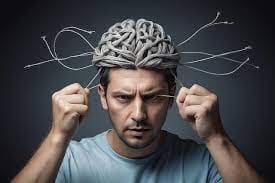Do you often feel as if you are moving in a thick fog and can’t think straight or concentrate on anything? Do you have anxiety that’s so overwhelming it’s hard to concentrate or make decisions? Then you are not alone. Anxiety and brain fog are two of the most common diseases that may seriously alter daily life. In this article, we will discuss the relationship between anxiety and mental fog, their causes and symptoms, and offer practical tips on how to overcome them.
Understanding Anxiety and Mental Fog
Anxiety is a normal human emotion that everybody experiences from time to time. It is that feeling of worry, nervousness, or fear, which can be in mild or severe form. The triggers of anxiety are very numerous and could be caused by stress, fear, and uncertainty.
On the other hand, mental fog is a condition where there is no clarity, focus, or concentration of the mind. It’s that feeling of being cut off from your thoughts, emotions, and everything in your environment. Mental fog may be caused by many different causes, such as anxiety, depression, stress, and lack of sleep.
The Link Between Anxiety and Mental Fog
Anxiety and mental fog have a strong connection. Anxiety triggers our body’s “fight or flight” response, which releases stress hormones like adrenaline and cortisol into our system. These hormones can hurt our thinking ability, which leads to mental fog.
Also, anxiety can bring about mental fog by:
- Taking our mind off our thoughts and feelings
- Making it hard to pay attention and stay focused
- Messing up our sleep, which makes us tired and foggy-headed
- Changing our mood, which can make us feel down and hopeless
What Causes Anxiety and Mental Fog
Many things can cause anxiety and mental fog such as:
- Genetics: Anxiety and mental fog can pass down through families hinting at a genetic connection.
- Brain chemistry: Uneven levels of brain chemicals like serotonin and dopamine can lead to anxiety and mental fog.
- Life events: Tough experiences, pressure, and big life shifts can set off anxiety and mental fog.
- Medical conditions: Some health issues such as an under active thyroid low blood count, and long-term tiredness can bring on anxiety and mental fog.
- Lifestyle choices: A poor eating plan, not enough physical activity, and too little rest can add to anxiety and mental fog.
The symptoms of anxiety and mental fog might differ from one person to another, but here is a list of common ones:
Anxiety:
- Fast heartbeat or palpitations
- Sweating, trembling, or shaking
- Shortness of breath or difficulty breathing
- Nausea or abdominal pain
- Fear or worry about the future
Mental Fog:
- Difficulty concentrating or focusing
- Forgetfulness or memory loss
- Disorganization or confusion
- Lack of motivation or energy
- Feeling disconnected from thoughts, emotions, and surroundings
Overcoming Anxiety and Mental Fog
While anxiety and mental fog can be hard to overcome, there are quite several effective strategies that can help. Here are some down-to-earth tips to get you started:
- Practices such as deep breathing, progressive muscle relaxation, and mindfulness meditation have been seen to reduce anxiety and mental fog.
- Exercise regularly: Exercises help in enhancing your mood and improving cognitive function.
- Improve sleep habits: Setting a regular pattern for sleep and avoiding caffeine and electronics before bedtime could also help in the betterment of quality sleep.
- Eat a balanced diet: Eating a healthy, balanced diet loaded with fruits, vegetables, whole grains, and lean protein can help your brain function and less anxiety.
- Seek social support: Talk with friends, family members, or even therapists to get emotional support and feel less isolated.
More Ways to Overcome Anxiety and Mental Fog
In addition to the techniques listed above, here are some more ways through which anxiety and mental fog can be managed.
- Cognitive-behavioral therapy: CBT is a useful therapeutic method for identifying and challenging negative thought patterns and behaviors associated with anxiety and mental fog.
- Mindful movement: Engaging in some type of mindful movement, like yoga or tai chi, can also help improve cognitive functioning and decrease feelings of anxiety.
- Journaling: Writing down your thoughts and feelings helps to process and release emotions that could be causing anxiety and mental fog.
- Grounding techniques: Grounding techniques, such as paying attention to your five senses, can keep you present and centered, reducing anxiety and brain fog.
- Self-care: Make time for activities that bring you joy and relaxation, such as reading, listening to music, or taking a bath.
- Set realistic goals: Break big tasks down into small ones, and take things one step at a time.
- Practice gratitude: Reflect on the things you are thankful for each day, no matter how small they may seem.
- Seek professional help: If anxiety and mental fog are impacting your mental health.
Conclusion
Anxiety and brain fog are probably one of the most prevalent conditions that could significantly impact your daily life. By relating anxiety to brain fog, defining its causes and symptoms, and introducing effective ways of coping, you’re able to surmount these life conditions and be able to lead a vanguard life. Just be sure to include being patient and kind to yourself.


